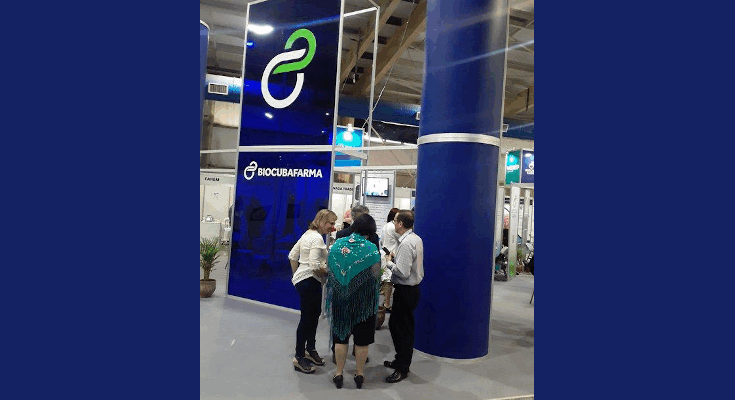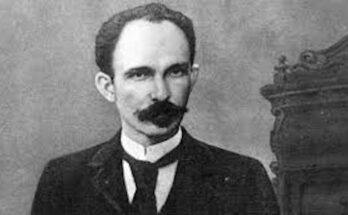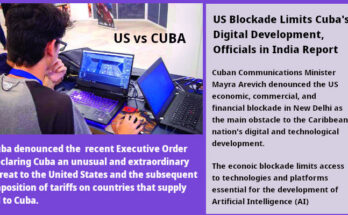Havana, Apr 24 (Prensa Latina) The XVI International Health Fair for All, which concludes today in this capital, consolidated Cuba’s capabilities in the health sector and the biotechnology industry.
Proof of this are the various collaboration agreements signed at this event that took place at the Pabexpo venue as part of the activities corresponding to the V International Convention Cuba Health 2025.
Among the most recent agreements are the contract between companies of the BioCubaFarma group and the Belarusian state-owned Academpharm, which signed with MedSol for the creation of a joint venture between both parties.
The Belarus company also consolidated a representation contract with FarmaCuba for the sanitary registration and commercialization of products manufactured by the Caribbean biopharmaceutical industry.
In addition, the Center for Research and Development of Medicines (Cidem) also signed a Letter of Intent with the Belarusian company for the transfer of technology of generic products developed by this Cuban institution.
On the other hand, the Peruvian company Quality Pharma signed a confidentiality agreement with the Cuban company Cimab S.A. in order to present the sanitary registration of the products erythropoietin in the presentations two thousand, four thousand and 10 thousand international units and filgrastim before the regulatory agency of that country.
Cimab is engaged in the commercialization of biopharmaceutical products, particularly monoclonal antibodies, therapeutic vaccines and other recombinant proteins for the diagnosis and treatment of cancer and other pathologies related to the immune system.
In the context of the XVI Fair, Cuba and Mexico presented an anesthesia unit and the joint work for the manufacture of the first impedance tomograph included in a mechanical ventilator.
According to Ricardo Ballesteros, general director of the Mexican company GATSIMED, in 2024 cooperation began in projects that seek to take advantage of the capabilities of his entity, COMBIOMED Digital Medical Technology and the Center for Neurosciences of Cuba, the latter belonging to BioCubaFarma, to develop new markets with comprehensive solutions focused on health.
In addition to the manufacture of highly complex and high-performance equipment, the alliance also focuses on providing platforms that contribute to the well-being of healthcare professionals, patients and families, based on the integral kit for Primary Healthcare, designed by COMBIOMED and in which other companies in the sector are involved, and which is relevant for GATSIMED, said the Mexican representative.
The executive announced that they are currently venturing into the generation of “Big data” focused on medical use and that they plan to launch a telemedicine tool at the BioHabana 2026 congress, although its use will not mean the replacement of the healthcare professional, it will facilitate decision-making, based on accurate and effective information in real time.
The 16th International Health for All Fair also included the conference “Cuba’s role in the health autonomy of Latin America and the Caribbean”, which focused the dialogue in a panel sponsored by BioCubaFarma and the European Union.
Those present there ratified that the European Union is the main supplier of technology and a source of financing projects for BioCubaFarma.
“This link builds a bridge to higher-standard markets, where Cubans are already investing and creating new capacities,” said the group’s president, Mayda Mauri.
As for Latin America, the general director of the Finlay Vaccine Institute, Vicente Vérez Bencomo, referred to the common fund for the purchase of vaccines existing in the region and pointed out that only five percent of what is purchased is produced in the countries from the Rio Bravo to Patagonia.
“Those who commercialize the most in that revolving fund are the large pharmaceutical companies. With them, vaccines range between 15 and 20 dollars per dose,” he warned.
If Cuba wants to insert itself in that market, it must compete so that most people can acquire the medicines at low cost, Vérez pointed out, and we must be able to produce 40 or 50 million doses annually, to be able to compete with Asian prices.
For her part, Judit Rius Sanjuan, director of the Pan American Health Organization’s (PAHO) Department of Innovation, mentioned the importance of technical cooperation and pointed to Cuba as an inspiration for sustainable ecosystems based on public health. “That vision of health above all else is what the region needs,” she commented.
(Taken from PL-Sp)




